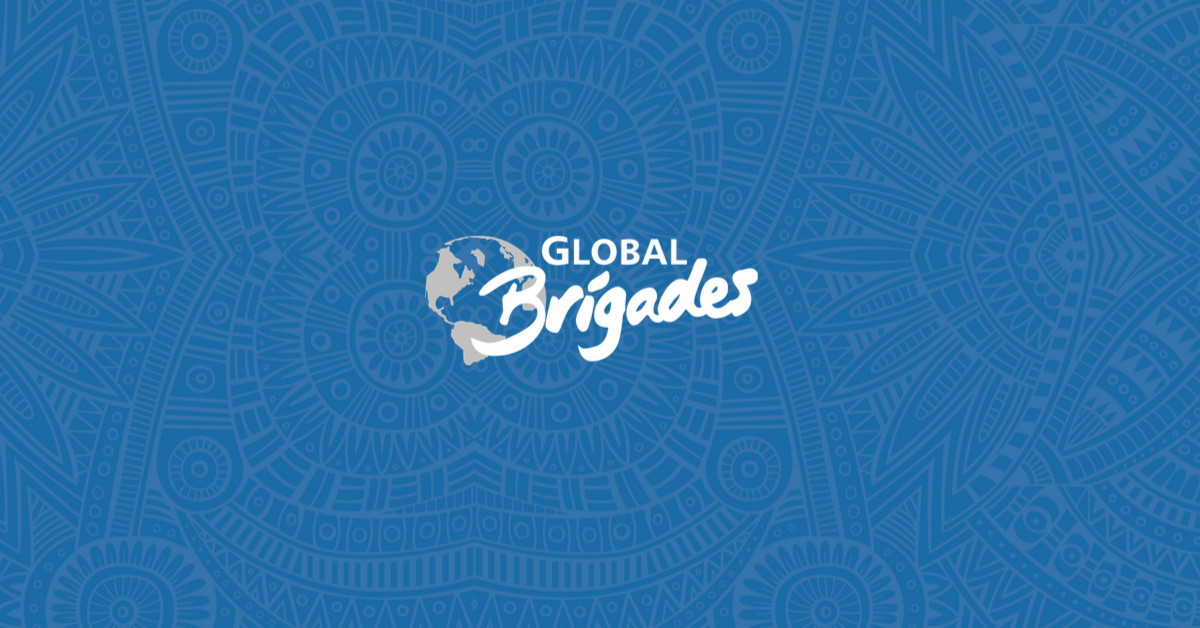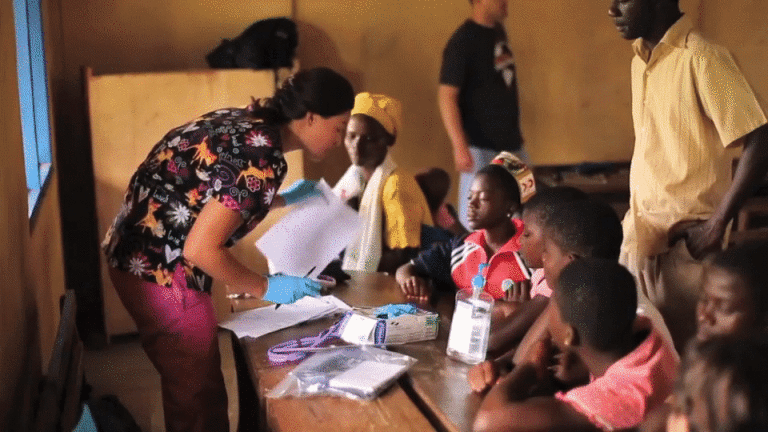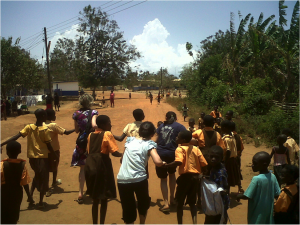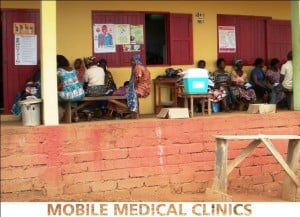In the fall of 2014, the Ebola virus spread across West Africa. Although there were never any reported cases of Ebola in Ghana, concern about the disease led us to stop all brigades to Ghana. But we didn’t stop our work…
Part I: Clean Water Comes to Ekumfi
Rain falls most steadily in Ghana from May to September, and for communities in the Ekumfi District, more rain means more drinking water.
Drinking rain water is socially accepted in Ekumfi, ranked by UNICEF in late 2014 as the worst developed district in Central Ghana.
Salt water from the Gulf of Guinea seeps into underground fresh water and nearby ponds and streams are still enough to breed disease.Rain water, at least, falls pure — but even this only lasts until it hits the ground.
When rain collects, it too becomes susceptible to microbial and chemical contaminants, rendering it hazardous to the drinker. Children are the most vulnerable to diseases from consuming rain water, typically unaware that what they are drinking could harm them.
When Global Brigades Ghana first began Water Brigades, their main focus was preventing children from drinking contaminated water. The team implemented School Rainwater Harvesters, which collected and filtered rain water from storm pipes to provide clean water for school children. But the Ghana team soon found that while children were drinking clean water in school, the School Rainwater Harvesters did not prevent them from drinking contaminated water as soon as they returned home.
GB Ghana had also partnered with community members to install Community Wide Rain Harvesters, but these systems faced their own set of problems. The Community Wide Rain Harvesters provided a centralized storage system to sell collected water during rainy season, but they were too expensive to scale to meet community members’ basic drinking water needs. During the dry season, the Community Wide Rain Harvesters were unreliable at best, depending upon water delivery from a single, inconsistent tanker service in the district.
These initial complications led GB Ghana to change its approach to Water Brigades. In August and September of 2012, the team piloted Household Rainwater Harvesters in Ekumfi. Water Brigade volunteers soon set to work implementing these Household Rainwater Harvesters as their main brigade duty.
“These systems [the HRHs] were decentralized and constructed incrementally in the communities,” says James Oppong, Water, Engineering, and Public Health Program Lead for Global Brigades Ghana. “The project was scalable with high student participation, and it was very successful.” With the help of brigaders, GB Ghana constructed 58 Household Rainwater Harvesters across 8 communities.
Although many families in Ekumfi now had access to clean water in their homes, they still couldn’t control when rain would fall. Global Brigades Ghana had to get creative with a more sustainable water solution, so they turned to the country’s largest water provider: the Ghana Water Company.
In partnership with the Ghana Water Company, Global Brigades Ghana encouraged the construction of a water treatment plant to serve Ekumfi District. The now-completed plant holds 2.6 million gallons of water per day, with the potential to serve 183,000 people.
Water Brigades were put on the calendar as early as May 2015 to begin constructing the standpipes that would funnel water from the treatment plant into communities. GB Ghana was depending heavily on brigaders for this construction. They needed volunteers to help their engineers test water samples and to construct the systems by digging trenches and laying and connecting the standpipes. But with the threat of Ebola looming in neighboring countries, GB Ghana entered 2015 facing an immense water project without any volunteer support.
Through their agreement with the Ghana Water Company, Global Brigades Ghana was still able to construct three new standpipes in the Aboano, Mboroborotor, and Akra communities. These standpipes reach nearly 2,950 people.
As with all Global Brigades Water projects, community Water Councils formed to support the construction and maintenance of the standpipe systems. However, GB Ghana noticed that certain Water Council members were not invested in monitoring the systems or paying back the total cost.
Oppong says this apathy is an unfortunate result of foreign aid’s prevalence in Ghana. “Communities are used to receiving projects for free,” he says. “A lot of education, sensitization, and promotion is needed for [repayment projects] to work.”
In response, GB Ghana began conducting more frequent community visits to assess the commitment of Water Councils, provide system inspections, and help the Councils improve their performance. The Water team is currently looking to partner with the Microfinance team and other local NGOs to provide a loan system that will ensure total payback on the standpipe systems and empower Ekumfi’s communities.
Despite the nearby water treatment plant’s total capacity, it currently only supplies 20,000 gallons per day to the district’s population, meaning the majority of people still lack access to clean water. The Water team’s core focus remains constructing more standpipes to connect communities to clean water and repairing any broken standpipes so that this water continues to flow. “Often times, there is only one standpipe for a community of 3,000,” says Oppong. “The distance to the standpipe can be prohibitive to certain families who then turn to contaminated water that is closer.”
Global Brigades Ghana recently submitted a proposal to fund three additional standpipes in new communities; they are still waiting for this grant to be approved.
Although the water treatment plant remains the most viable solution for delivering clean water to Ekumfi, it is likely to dry up annually. The Ghana Water Company is now looking into expanding a nearby dam to impound more water so that standpipe construction can continue.
The Ghana Water Company has clearly voiced its commitment to Global Brigades Ghana, considering the treatment plant as one of its long-term projects. GB Ghana believes this partnership could be the perfect opportunity to host new Water volunteers, should Global Brigades re-open future brigades to Ghana.




